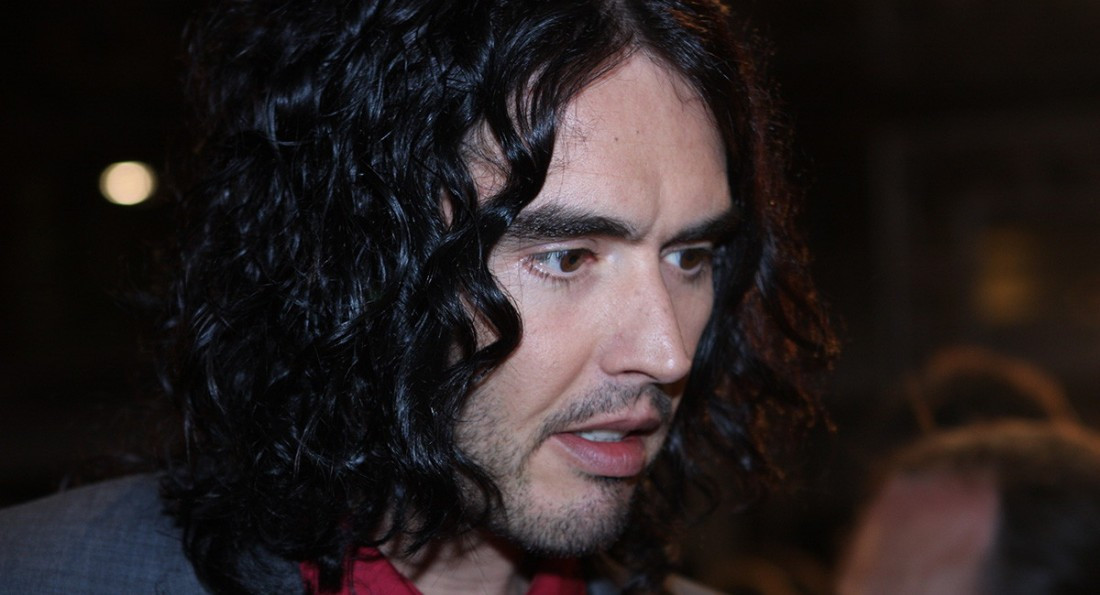Russell Brand and Mike Duffy: A brief comparison
One of these things is not like the other!
Russell Brand, a notable British comedian with equally notable eyebrows, made Internet headlines last week with his interview on BBC’s Newsnight. To the chagrin of interviewer Jeremy Paxton, Brand spent much of the interview lambasting the current political and economic systems, calling for dramatic change, and endorsing revolution. His criticisms were legitimate: “[Political systems] shouldn’t destroy the planet! Shouldn’t create massive economic disparity! Shouldn’t ignore the needs of the people!”
Aside from some critiques which can be made of Brand (“Brand is rich! Shouldn’t he share?” or “I don’t need celebrities to endorse my politics!”), what I enjoyed most about the interview was Paxton’s use of the two most common anti-radical arguments and Brand’s efficient responses.
First, Paxton blockishly insisted on focusing on Brand’s distaste for voting, ignoring the validity of the complaints he was making. Brand responded, “You have a disenfranchised, disillusioned, despondent underclass which are not being represented by that political system, so voting for it is tacit complicity!” Why vote, indeed, when all of your lived experience tells you: It. Just. Doesn’t. Matter.
Paxton followed up with another common tactic: “You-don’t-offer-a-specific-alternative-so-I-can’t-take-you-seriously.” This is a pathetically limited argument, made by those seeking to bludgeon a nascent conversation to death before ideas can even sprout.
Brand answered back in devastating form. “Jeremy,” he said, “Don’t ask me to sit here, in an interview with you, in a bloody hotel room, and devise a global Utopian system.” He later added, “There are people with alternative ideas, that are far better qualified than I am, and are far better qualified, more importantly, than the people that are currently doing that job.” Devising solutions can only occur after we first discuss the problems openly.
A hop across the pond, Senator Mike Duffy was also making headlines, albeit less popular on YouTube. Duffy, infamous for a $90,000 expense scandal, where he claimed living expenses he was technically allowed to claim, for a house he didn’t live in. The PMO’s Chief of Staff gifted him the money to pay it back (oops! That’s not allowed!), and Duffy has asserted this week that the Prime Minister himself strong-armed Duffy into taking the cash. Drama.
By comparison, Brand was referring to the inequalities which accompany capitalist democracy. He fulminated on the British government cutting social welfare while simultaneously going to court to defend bankers’ rights. Duffy is considered an outlier, a Senator corrupted by his privilege. Are the situations so different?
Duffy took the money because he could; and now he is derided. Similarly, corporations constantly seek the highest possible profits and the strongest growth, without receiving the same condemnation. There is a certain animal instinct in taking because you can, yet we have succeeded in shaking all kinds of other feral impulses over the past 10,000 years. I’ve never killed another human to mark my territory – I prefer to pay rent. Duffy’s greed, despite being within the rules, is categorically wrong. I look forward to the day when we hold everyone to that same standard.
Despite our shared love of beards, I am skeptical about adopting Russel Brand as my socialist messiah. Still, I agree with Brand’s criticisms, and the desperate need to build some alternatives. It’s an interview worth watching.
Fabian Suarez-Amaya votes every chance he gets, but thinks Brand makes a case for those who don’t. He is studying Education at the University of Winnipeg.
Published in Volume 68, Number 9 of The Uniter (October 30, 2013)








